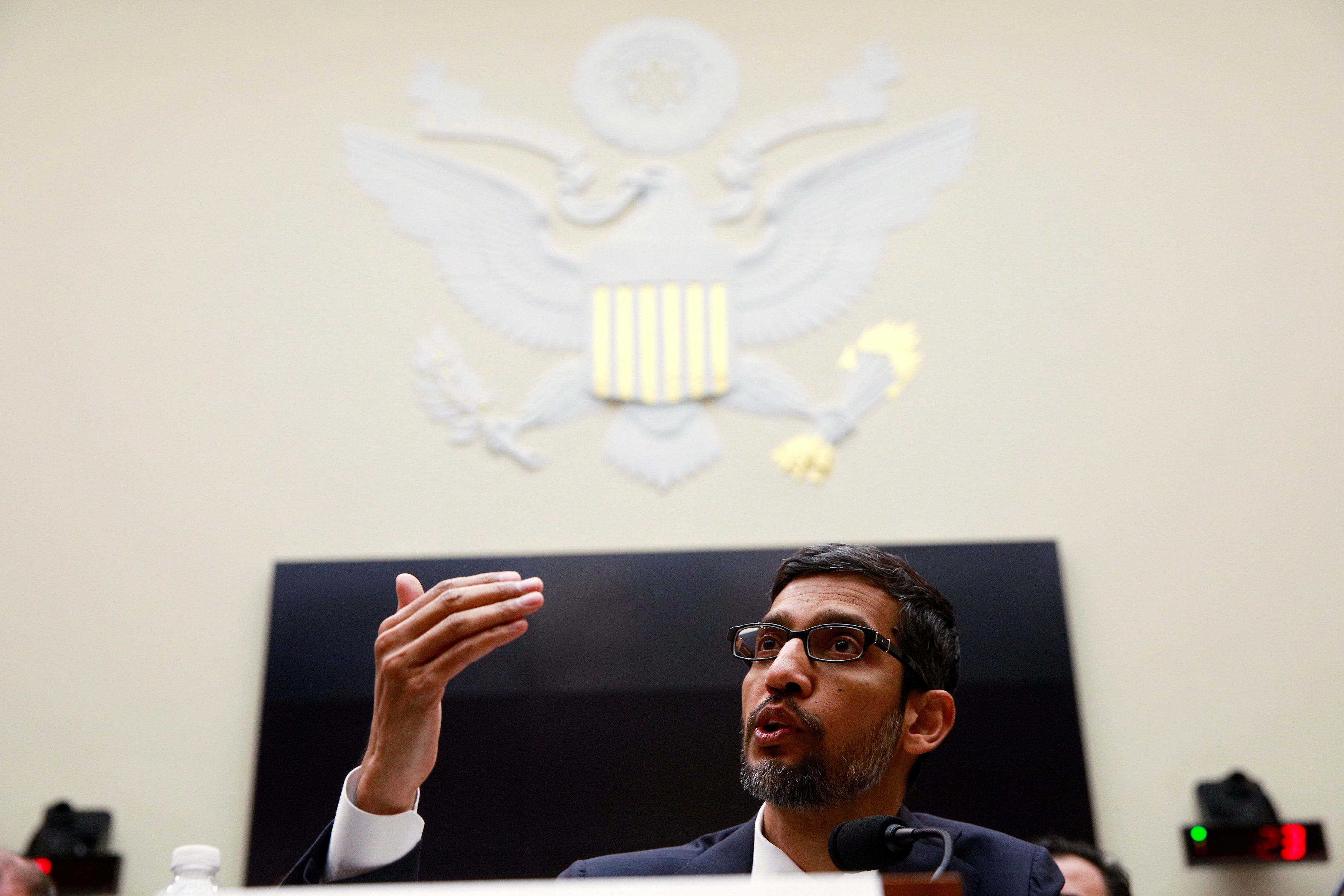Google boss Sundar Pichai trekked to Capitol Hill on Tuesday to answer questions from lawmakers on the House Judiciary Committee. It was the Indian-born CEO's first public appearance before Congress, after he declined an earlier invitation to testify on foreign election interference alongside executives from Facebook and Twitter before the Senate Intelligence Committee in September. You can catch Pichai's full three and a half hours in the hot seat here.
Lawmakers from both parties peppered Pichai with questions about privacy and Google's plans to reenter the search market in China. They sparred with one another over whether Republicans' allegations of an anti-conservative political bias in Google's search algorithms were worth dwelling on.
Perhaps the most significant moment of the hearing came before Pichai was even sworn in, when Republican House Majority Leader Kevin McCarthy laid bare the growing chasm between Silicon Valley and Washington: "We need to know that Google is on the side of the free world," he declared.
It was a sharp distillation of the twin political risks facing America's biggest tech companies heading into 2019.
- A steady sting of data breaches, swirling privacy concerns, and allegations of biased search results have eroded public trust in companies that millions of Americans and billions of people worldwide rely on to access news and information.
- At the same time, Silicon Valley has become a strategically important asset in the US pushback against China and other authoritarian countries' use of technology as a tool for political control. That's a particular problem for Google, whose designs on re-entering China – potentially with a search engine that complies with Chinese censors – led to some tough questions on Tuesday.
It leaves Silicon Valley as a whole more vulnerable to some form of regulatory crackdown next year while simultaneously making it harder for the sector's most important global companies to push back against Washington's growing calls to put "America First."
